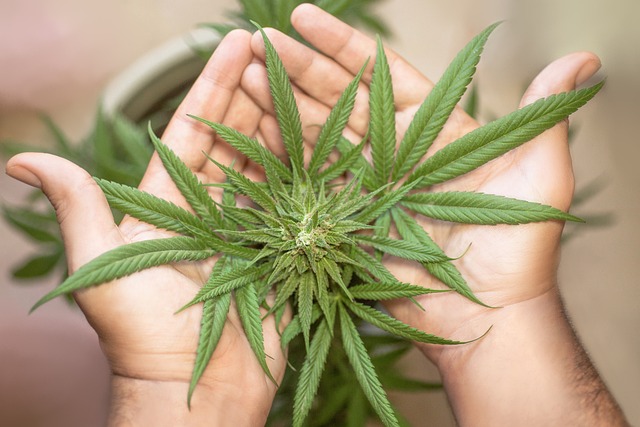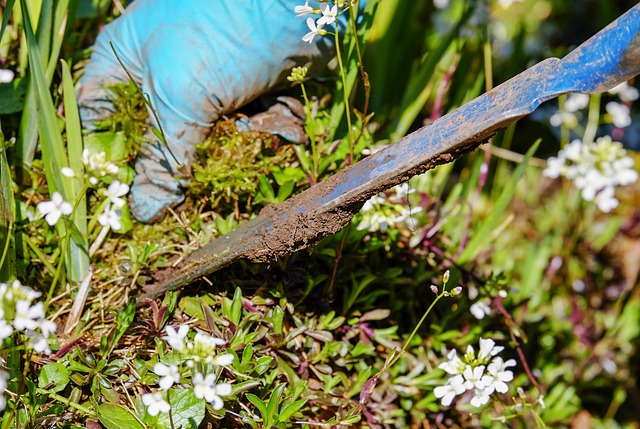In New Jersey, the legal landscape for THCA (tetrahydrocannabinolic acid), a non-psychoactive cannabinoid and precursor to THC, has become a point of interest following its inclusion in recent recreational THC legislation. While THCA is known for its potential health benefits, including anti-inflammatory and neuroprotective effects, users should be cautious as it can cause side effects like dizziness, dry mouth, heightened anxiety, or paranoia at higher doses. The legal status of THCA, particularly in the form of THCA flowers, remains complex due to conflicting state and federal regulations, emphasizing the need for consumers to stay informed about legal changes. As research on THCA is still developing, individuals are advised to consult healthcare professionals for medical advice and to follow New Jersey's evolving cannabis regulations to ensure safe and compliant use. THCA's status as legally recognized for medical use under the Compassionate Use Medical Marijuana Act and its grey area in other forms highlight the importance of monitoring legislative updates in this dynamic field.
Exploring the nuanced effects of THCA flower emerges as a timely subject, particularly for residents of New Jersey amidst its evolving legal landscape. As THCA becomes legally accessible within the state, it’s crucial to understand its potential side effects and safety considerations. This comprehensive guide delves into the implications of THCA’s legal status in New Jersey, offering insights into how this cannabinoid may influence well-being. Stay informed on the latest developments in cannabis legislation and health impacts with our detailed exploration.
- Exploring THCA Flower Side Effects: A Comprehensive Guide for Residents of New Jersey as Legality Shifts
- Navigating the Implications of THCA Legal Status in New Jersey: Understanding Potential Side Effects and Safety Considerations
Exploring THCA Flower Side Effects: A Comprehensive Guide for Residents of New Jersey as Legality Shifts

As the legislative landscape in New Jersey evolves, residents are increasingly exploring the potential benefits and side effects of THCA flower, a cannabinoid found in hemp and marijuana plants. THCA, or tetrahydrocannabinolic acid, is non-psychoactive but is considered the precursor to THC, which is the primary psychoactive component of cannabis. With the legalization of recreational cannabis including THCA in New Jersey, it’s crucial for users to understand the implications of its consumption. THCA flower has been reported to have various therapeutic properties, ranging from anti-inflammatory to neuroprotective effects, and is often used for its potential health benefits. However, like any substance, it can induce side effects in some individuals. Common side effects may include dizziness, dry mouth, and increased anxiety or paranoia, particularly at high doses. It’s important for New Jersey residents to approach THCA flower with caution, adhering to recommended dosages and consulting healthcare professionals, especially if they have pre-existing health conditions or are taking other medications. As the legal status of THCA continues to solidify in New Jersey, ongoing research and user experiences will further elucidate its effects and side effects, ensuring a more informed consumer base. Users should remain updated on the latest regulations and guidance to ensure safe and responsible use within the state’s framework for legal cannabis.
Navigating the Implications of THCA Legal Status in New Jersey: Understanding Potential Side Effects and Safety Considerations

Navigating the implications of THCA’s legal status in New Jersey involves a nuanced understanding of both state and federal regulations, as well as the potential side effects associated with its consumption. As of the knowledge cutoff date, THCA, or tetrahydrocannabinolic acid, a non-psychoactive precursor to THC found in raw cannabis, has been legalized for medical use in New Jersey under the Compassionate Use Medical Marijuana Act. However, the legality of THCA flowers specifically can be complex, as they may fall into a grey area due to differing interpretations of state law and DEA regulations. It’s crucial for consumers to stay informed about the evolving legal landscape to avoid inadvertent violations of the law.
When considering the safety and side effects of THCA, it’s important to approach the topic with a science-based perspective. Research suggests that THCA may have therapeutic properties without the psychoactive effects associated with THC. However, like any substance, it can elicit certain side effects, which may include mild ones such as dry mouth and red eyes, or more severe reactions for some individuals, particularly if used in high doses or combined with other substances. Users should be cautious and aware that the body of research on THCA is still growing, and long-term effects remain less clear. In New Jersey, where the regulatory framework continues to develop alongside public opinion and medical research, consumers are advised to consult healthcare professionals and review current guidelines before incorporating THCA into their wellness regimen. Safety should always be a priority when exploring new compounds within the cannabis plant, especially in light of New Jersey’s evolving legal landscape for THCA-related products.
In conclusion, the exploration of THCA flower side effects within the context of its newfound legality in New Jersey is a significant step towards understanding the full spectrum of its potential impact on residents. As detailed throughout this guide, awareness of these effects is crucial for those considering its use post-legalization. The implications of THCA’s status in New Jersey are multifaceted, requiring careful consideration and adherence to safety guidelines to mitigate any negative outcomes. It’s clear that as the landscape of cannabis legality evolves, so too must our approach to its responsible use. Residents interested in THCA should stay informed on the latest research and regulatory updates to ensure a safe experience with this compound.
